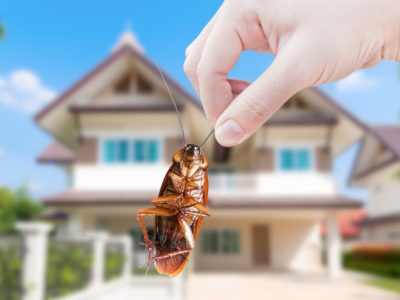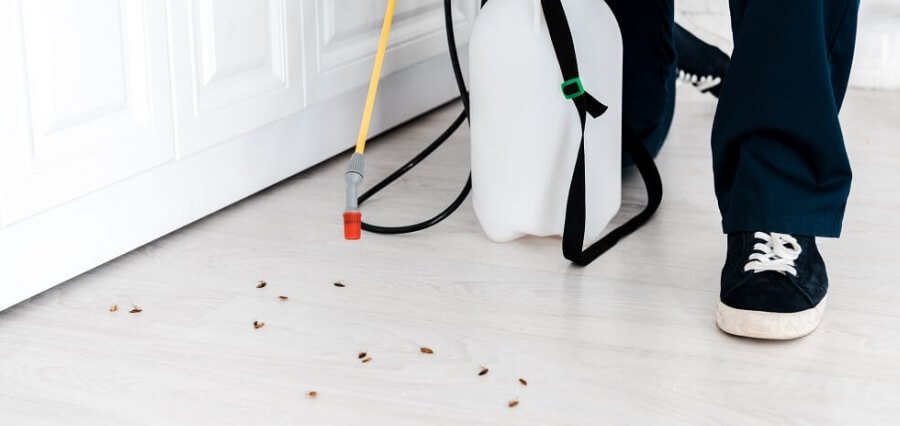Comprehending the Various Techniques to Pest Control: A Comprehensive Guide

Natural Insect Control Techniques
Utilizing eco-friendly strategies such as friend growing and organic bug control is vital for properly handling pests in farming settings. Companion planting entails growing different plants in proximity to prevent pests, boost nutrient uptake, and enhance overall plant health.
Organic bug control involves presenting natural killers or pathogens to regulate pest populations. Ladybugs, for example, eat aphids, controlling their numbers without the demand for chemical pesticides. Another instance is making use of Bacillus thuringiensis (Bt), a microorganism that targets particular insect parasites while being harmless to human beings, animals, and valuable bugs.
These eco-friendly techniques not just decrease the dependence on synthetic pesticides yet also assist preserve biodiversity and soil wellness. By incorporating natural parasite control techniques right into farming practices, farmers can accomplish lasting insect monitoring while minimizing unfavorable influence on the environment.

Chemical Pest Control Solutions
In addition to natural bug control approaches, the utilization of chemical insect control options plays a significant role in efficiently handling pest populaces in farming settings. Chemical pest control services are developed to target certain bugs that might create extensive damage to crops. These solutions frequently include synthetic pesticides that are created to remove bugs promptly and successfully.
Among the crucial benefits of chemical bug control options is their efficiency in managing bug invasions on a big scale. Farmers can apply these solutions using numerous approaches such as splashing, airing out, or seed treatment to safeguard their crops from harmful pests, weeds, and diseases. Additionally, chemical bug control remedies are fairly very easy to apply and can provide quick outcomes, aiding farmers protect their yields and decrease financial losses.
However, it is crucial to make use of chemical insect control solutions carefully to reduce possible unfavorable impacts on the atmosphere, non-target organisms, and human wellness. Proper application strategies, adherence to safety standards, and regular surveillance are essential to make certain the accountable usage of chemical insect control remedies in agricultural techniques.
Biological Bug Control Approaches
Organic insect control comes close to leverage all-natural killers or pathogens to handle pest populations in farming setups efficiently. This approach offers a environmentally friendly and lasting solution to pest administration, lowering the reliance on synthetic chemicals and lessening injury to the environment. One typical organic control strategy is the intro of natural opponents, such as ladybugs or parasitical wasps, to target details pests. These predators feed upon the bugs, aiding to regulate their populations naturally - pest control clovis.
One more organic control approach includes using virus discover here like germs, viruses, or fungis to contaminate and eliminate insects. Overall, organic bug control methods use a sustainable and targeted option to pest administration in agriculture.
Integrated Insect Monitoring (IPM)
Integrated Parasite Management (IPM) is an extensive technique that integrates various bug control techniques to properly handle and decrease pest populations in farming systems. IPM concentrates on long-lasting avoidance of insects via a mix of biological, cultural, physical, and chemical control approaches. By integrating these different techniques, IPM intends to reduce reliance on chemical pesticides, lessen ecological impact, and promote lasting parasite management practices.
One secret facet of IPM is using biological controls such as natural predators, bloodsuckers, and virus to manage pest populations. This method takes advantage of the power of nature to keep an equilibrium in between pests and their natural enemies without triggering damage to the atmosphere.
In addition, IPM entails social techniques like plant habitat, rotation, and cleanliness manipulation to develop negative problems for parasites and interrupt their life process. Physical controls such this link as catches, barriers, and mulches are likewise used to avoid bug invasions.
Mechanical and Physical Insect Control Techniques
Utilizing non-chemical approaches, such as physical and mechanical bug control methods, is a crucial aspect of thorough bug administration techniques, building upon the structure of Integrated Bug Management's holistic strategy. Mechanical bug control includes making use of physical obstacles or traps to prevent pests from accessing and harming crops or frameworks. This technique can consist of methods like installing displays on windows, using row covers in farming, or employing sticky catches to catch pests.
Physical pest control techniques, on the other hand, concentrate on straight removing insects through physical means. For circumstances, using warmth treatments to eliminate bed bugs or vacuuming up insects like ants or crawlers can be reliable methods to handle problems without the usage of chemicals. By integrating these physical and read here mechanical pest control methods right into an Integrated Insect Administration strategy, specialists and individuals can minimize dependence on pesticides while still properly managing pest populations and minimizing damages.
Conclusion

In enhancement to natural parasite control techniques, the utilization of chemical parasite control options plays a significant role in properly handling pest populations in farming atmospheres.One of the key benefits of chemical insect control solutions is their performance in managing parasite invasions on a large range.Integrated Pest Monitoring (IPM) is an extensive approach that incorporates numerous bug control techniques to properly handle and reduce pest populations in farming systems.Utilizing non-chemical approaches, such as mechanical and physical bug control techniques, is a crucial element of comprehensive bug management methods, constructing upon the foundation of Integrated Parasite Management's alternative approach. By integrating these physical and mechanical pest control methods right into an Integrated Parasite Administration strategy, individuals and experts can minimize dependence on chemicals while still efficiently handling pest populaces and minimizing damages.